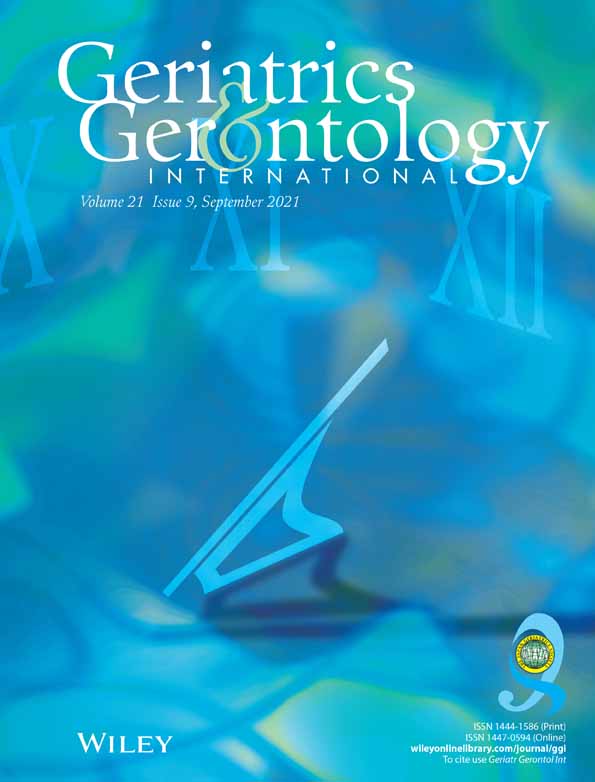Factors associated with psychological distress in family caregivers: Findings from nationwide data in Japan
Abstract
Aim
Family caregivers can experience psychological distress, resulting in physical and mental health problems, and discontinuation of caregiving. This study's objective was to examine factors associated with caregiver psychological distress.
Methods
We analyzed data from the Comprehensive Survey of Living Conditions in 2007, 2010, 2013 and 2016, which included 12 504 pairs of caregivers and care recipients sharing a household in Japan. Kessler's Psychological Distress Scale (K6) was used to measure caregiver psychological distress. Multivariable logistic regression analyses identified factors associated with caregiver psychological distress (K6 score ≥5).
Results
Caregivers' median K6 score was 3 (interquartile range 0–7), and 38.6% had a K6 score ≥5. K6 scores ≥5 were positively associated with female sex (adjusted odds ratio 1.35, 95% CI 1.21–1.51), poor caregiver health status (compared with “very good,” 9.48, 95% CI 7.91–11.37 for “not very good/poor”), longer care time (compared with “help only when needed,” 1.40, 95% CI 1.25–1.58 for “almost all day”) and dementia (1.16, 95% CI 1.05–1.28), lower respiratory tract disease (1.25, 95% CI 1.06–1.49) and diabetes (1.16, 95% CI 1.00–1.33) in care recipients. K6 scores ≥5 were negatively associated with older caregiver age (compared with 20–54 years, 0.65, 95%CI 0.58–0.74 for 55–64 years, 0.54, 95%CI 0.46–0.63 for 65–74 years and 0.50, 95% CI 0.40–0.62 for ≥75 years), employment (0.88, 95% CI 0.80–0.97) and being a care recipient's child-in-law (compared with spouse 0.75, 95% CI 0.61–0.92).
Conclusions
The findings identified several factors associated with caregiver psychological distress, showing that particular attention might need to be paid to caregivers with these risk factors. Geriatr Gerontol Int 2021; 21: 855–864.




